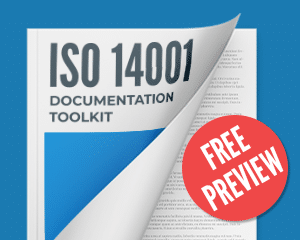Under the Corporate Sustainability Reporting Directive (CSRD) introduced by the European Union, large and listed companies face increased sustainability reporting requirements. So, what exactly does CSRD require, and is it applicable only for large companies, or for small ones as well?
- Affects around 50,000 companies (large companies, listed SMEs, and some financial institutions).
- Companies must disclose ESG (environmental, social, governance) practices.
- Enforcement begins in 2024 for companies already under NFRD, 2025 for others, and 2026 for SMEs and certain financial institutions.
- Supports the European Green Deal for sustainability and transparency.
What is CSRD, and why is it important?
Published in December 2022, CSRD is a legislative act of the European Union that amends previous regulations and directives concerning corporate sustainability reporting. It aims to improve companies’ reporting of sustainability information, ensuring that they provide consistent, comparable, and reliable sustainability information. This information is crucial for investors and stakeholders to make well-informed decisions based on a company’s environmental, social, and governance (ESG) practices.
Because CSRD is a directive, each EU member country will have to transpose this directive into national legislation, using CSRD as a baseline.
CSRD’s importance lies in its role in supporting the European Green Deal, a strategy to transform the EU into a modern, resource-efficient economy with no net emissions of greenhouse gases by 2050. It is designed to help manage risks related to climate change, resource depletion, and social issues and foster transparency in financial and economic activities. CSRD combats greenwashing and contributes to more sustainable investment by requiring comprehensive sustainability reporting.
This directive is significant, as it requires more thorough reporting on sustainability issues, incorporating ESG factors.
To what types of companies is CSRD applicable?
CSRD applies to all large companies, including those traded on stock exchanges and those that are not. Companies based outside the EU that engage in significant business within the EU, specifically those with an EU turnover exceeding €150 million, will also be required to adhere to these standards.
The listed small and medium-sized enterprises (SMEs) will be included under these requirements, together with small and non-complex credit institutions and captive insurance undertakings (insurance companies set up by a parent company to insure the risks of that parent company itself), with additional time to adjust to the new requirements. Micro-companies are excluded.
According to the European Commission, these new rules will cover around 50,000 companies.
When does CSRD come into force?
The directive comes into force as follows:
- For large companies subject to non-financial reporting under NFRD (Non-Financial Reporting Directive) — for financial years starting on January 1, 2024.
- For large companies not previously subject to NFRD — for financial years starting on January 1, 2025.
- For SMEs listed on a stock exchange, for small and non-complex credit institutions, and for captive insurance undertakings — for financial years starting on January 1, 2026.
What are the requirements?
The main CSRD requirements are as follows:
- Disclose sustainability practices, focusing on ESG factors.
- Report on their business model, sustainability policies, adverse impacts, sustainability risks, and essential transparency indicators.
- Determine risks related to sustainability, like climate change and labor challenges.
- Use key indicators to provide measurable and verifiable data.
What does this mean for smaller companies?
While the CSRD primarily targets large companies, it also requires some categories of smaller companies to comply, as explained above.
The CSRD acknowledges the resource constraints often faced by SMEs and provides requirements that are appropriate to their size and operational scope. This means that the reporting standards for SMEs are intended to be less burdensome than those for larger companies, ensuring that SMEs can comply without excessive administrative or financial strain.
It is important to note that, although most smaller companies do not need to comply with CSRD, they might feel indirect effects as large companies in their supply chains start to comply with the directive and require sustainability information from their SME suppliers. Large companies need to report on their full value chain’s sustainability impact, including their interactions and transactions with SMEs.
So, while CSRD doesn’t explicitly mandate most SMEs to comply with the same detailed reporting requirements, these smaller companies may need to start tracking and providing sustainability data to their larger business partners, who are subject to the CSRD’s reporting requirements. This ripple effect emphasizes the CSRD’s broader objective of enhancing sustainability practices across the market, extending beyond just the large companies that are directly regulated by it.
How ISO 14001 can help
The ISO 14001 standard can be a valuable tool for companies to meet CSRD requirements. Here’s how ISO 14001 aligns with CSRD requirements, and the benefits of implementation:
- Improved environmental management: By implementing ISO 14001, companies can more effectively identify, monitor, and manage their environmental impacts, making it easier to report these under CSRD.
- Enhanced compliance: ISO 14001 requires organizations to understand and comply with relevant environmental laws and regulations. This aspect of compliance is crucial for CSRD reporting, which also demands disclosure of compliance with environmental regulations.
- Increased efficiency and cost savings: ISO 14001 encourages organizations to streamline processes, leading to more efficient resource use and reduced waste. This aligns with CSRD’s emphasis on sustainable resource use and waste management and can result in company cost savings.
- Better risk management: ISO 14001 and CSRD emphasize the importance of determining and managing environmental risks. ISO 14001’s framework assists companies in recognizing potential environmental risks and implementing measures to mitigate them, which is a key aspect of CSRD reporting.
- Elevated market reputation and interested parties’ confidence: Achieving ISO 14001 certification can enhance a company’s reputation, showing interested parties that the organization is committed to environmental management. This can be beneficial under the CSRD, as it demonstrates to investors, customers, and other interested parties that the company is proactive about sustainability.
- Easier data collection and reporting: ISO 14001 requires collection of data related to environmental performance. This practice aligns with the CSRD’s requirement for data-driven sustainability reporting, making it easier for companies to gather and report the necessary information.
In summary, ISO 14001 provides a comprehensive framework for environmental management that aligns well with the CSRD requirements. Adopting ISO 14001 can help companies meet CSRD requirements more effectively while providing benefits like improved efficiency, compliance, risk management, and enhanced reputation.
Click here to see a free preview of the ISO 14001 Premium Documentation Toolkit, which enables you to set the objectives and implement the whole EMS in the fastest and most efficient way.

 Carlos Pereira da Cruz
Carlos Pereira da Cruz

